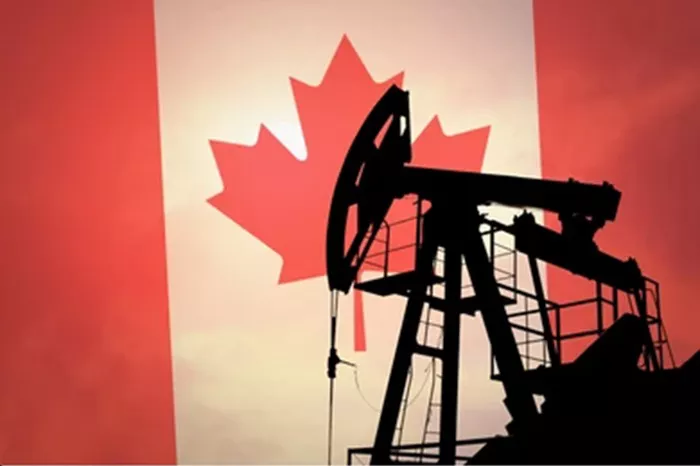Gasoline prices fluctuate based on a variety of factors, from global crude oil prices to regional tax policies and refining costs. In Canada, these factors play a significant role in determining how much consumers pay at the pump. This article provides an in-depth analysis of gasoline prices per gallon in Canada, focusing on the various influences that drive these costs.
Overview of Gasoline Pricing in Canada
Global Crude Oil Prices
One of the most significant factors affecting gasoline prices in Canada is the cost of crude oil on the global market. As a commodity, crude oil prices are subject to supply and demand dynamics, geopolitical tensions, production decisions by oil-producing countries, and other global economic factors.
Global Supply and Demand: An increase in global oil demand or a decrease in supply can lead to higher crude oil prices, subsequently raising gasoline prices.
Geopolitical Tensions: Political instability in oil-producing regions can disrupt supply chains, leading to price hikes.
OPEC Decisions: The Organization of the Petroleum Exporting Countries (OPEC) often influences oil prices through production quotas.
Refining Costs
The process of refining crude oil into gasoline is complex and costly. The costs associated with refining, including maintenance, upgrades to meet environmental standards, and operational expenses, directly impact the price at the pump.
Operational Expenses: Refineries have significant operational costs that fluctuate based on various factors, including labor and energy prices.
Environmental Regulations: Compliance with environmental regulations requires investment in technology and processes, adding to refining costs.
Taxes and Government Policies
Taxes play a crucial role in gasoline pricing in Canada. Both federal and provincial governments impose taxes on gasoline, which vary across different regions.
Federal Taxes: The federal excise tax on gasoline is a fixed amount per liter.
Provincial Taxes: Each province has its own tax policies, leading to variations in gasoline prices across the country.
Carbon Taxes: Canada’s commitment to reducing greenhouse gas emissions has led to the implementation of carbon taxes, further affecting gasoline prices.
Regional Variations in Gasoline Prices
Eastern Canada
Gasoline prices in Eastern Canada, including provinces like Ontario, Quebec, and the Atlantic provinces, tend to be higher due to several factors:
Higher Taxes: Provinces like Quebec have higher provincial taxes and carbon taxes, increasing the overall price per gallon.
Import Costs: Eastern Canada relies more on imported crude oil, which can be more expensive than domestically produced oil.
Western Canada
In Western Canada, including provinces like Alberta, British Columbia, and Saskatchewan, gasoline prices can be lower due to:
Proximity to Production: Alberta, being a significant oil-producing region, benefits from lower transportation costs for crude oil.
Lower Provincial Taxes: Some western provinces have lower provincial taxes compared to their eastern counterparts.
Northern Canada
Gasoline prices in Northern Canada are typically higher due to logistical challenges and higher transportation costs.
Remote Locations: The remote nature of many communities in Northern Canada means that gasoline must be transported over long distances, increasing costs.
Limited Infrastructure: Limited refining and distribution infrastructure in these regions also contribute to higher prices.
Seasonal Variations in Gasoline Prices
Summer Driving Season
During the summer months, gasoline prices in Canada often rise due to increased demand.
Vacation Travel: More Canadians travel during the summer, leading to higher gasoline consumption.
Refinery Maintenance: Refineries often schedule maintenance in the spring, reducing supply and driving up prices.
Winter Months
In winter, gasoline prices can be lower due to decreased demand.
Reduced Travel: Fewer people travel long distances in the winter, leading to lower gasoline consumption.
Winter Fuel Blends: Refineries produce different fuel blends for winter, which can sometimes be less costly to produce.
See also: Diesel Vs Gasoline: Which Is Cleaner?
Impact of Exchange Rates
Canadian Dollar vs. US Dollar
The value of the Canadian dollar relative to the US dollar also impacts gasoline prices.
Crude Oil Pricing: Crude oil is typically priced in US dollars, so a weaker Canadian dollar makes oil more expensive for Canadian refineries to purchase.
Import Costs: A weaker Canadian dollar increases the cost of imported goods and services, including refined gasoline.
Hedging Strategies
Refineries and gasoline retailers often use hedging strategies to manage exchange rate risks.
Futures Contracts: By locking in prices through futures contracts, companies can protect against exchange rate fluctuations.
Currency Hedging: Financial instruments like currency hedging can also mitigate the impact of exchange rate changes.
Comparing Gasoline Prices Across Major Cities
Toronto
Toronto, the largest city in Canada, typically sees higher gasoline prices due to:
High Demand: As a major metropolitan area, demand for gasoline is high.
Provincial Taxes: Ontario’s provincial taxes contribute to higher prices.
Vancouver
Vancouver often has some of the highest gasoline prices in Canada.
Environmental Policies: British Columbia has aggressive environmental policies, including high carbon taxes.
Import Reliance: Vancouver relies heavily on imported gasoline, adding to costs.
Calgary
Calgary, located in the heart of oil country, generally has lower gasoline prices.
Proximity to Production: Being close to Alberta’s oil fields reduces transportation costs.
Lower Taxes: Alberta has some of the lowest gasoline taxes in Canada.
Conclusion
Gasoline prices in Canada are influenced by a complex interplay of global, national, and regional factors. From the cost of crude oil and refining processes to government taxes and seasonal demand, numerous elements contribute to the price per gallon. Understanding these factors can help consumers and policymakers navigate the ever-changing landscape of gasoline pricing. As the world moves towards renewable energy and technological advancements continue, the future of gasoline prices in Canada will likely see significant shifts.
Related topics:

